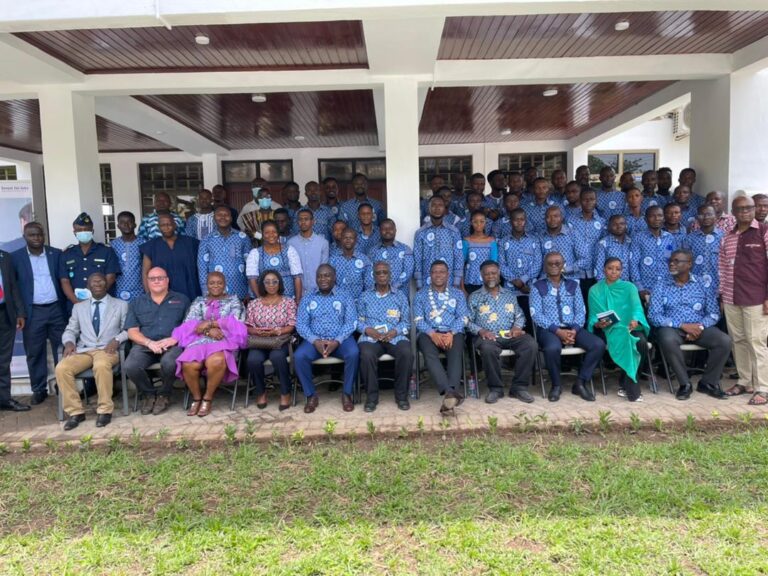The Ghana Institution of Engineering (GhIE) has officially licensed and inducted 57 beneficiary-artisans under its Craftsmen Register.
This novelty is a strategic move to ensure standards and regulations in the operations of engineering technicians and craftsmen in Ghana.
President of the Ghana Institution of Engineering, Prof. Charles Anum Adams India, is confident the move will wipe out quack craftsmen and go a long way to limit risks of market fires and structural-related disasters in the country.
“We want to call on the government of Ghana to provide support to the GhIE to set up a professional apprenticeship scheme as a healthy job creation strategy for the youth in professional trades which have future relevance. We wish to call on the Engineering Council of Ghana to pay attention to all occupational groups in the engineering family and set up systems for their regulation, monitoring and capacity development,” he stated.
In his remarks, John Duti, Team Leader of Invest for Jobs at GIZ-Ghana, said the ProfArts project is intended to improve the employment situation of local artisans and micro-enterprises in the construction sector and the associated value chain, through technical skill, upgrade training, business skills training, tool training, financial literacy training; and licensing under the Ghanaian craftsmen register of the Ghana Institution of Engineering.
Artisans were challenged with efficiency and reliability in delivery due to the changing technology landscape; dealing with customer standards and integrity/trust; issues of material shortages or over estimation (resulting from poor bill of quantity calculation); and lack of appropriate modern and efficient tools.
The gesture was formally announced at the institution’s annual conference on-going in Accra.
The induction marks the official and legal acceptance of the artisans, who are beneficiaries of the Professionalization of Artisans (ProfArts) project – into the Engineering Council.
The Professionalization of Artisans (ProfArts) project seeks to formalize the informal sector to improve the employment situation of Ghanaian local artisans within the construction sector.
Consequently, the licensing and induction was made possible through the cooperation of the Ghana Institution of Engineering and Invest for Jobs of the German Federal Ministry for Economic Cooperation and Development (BMZ).



